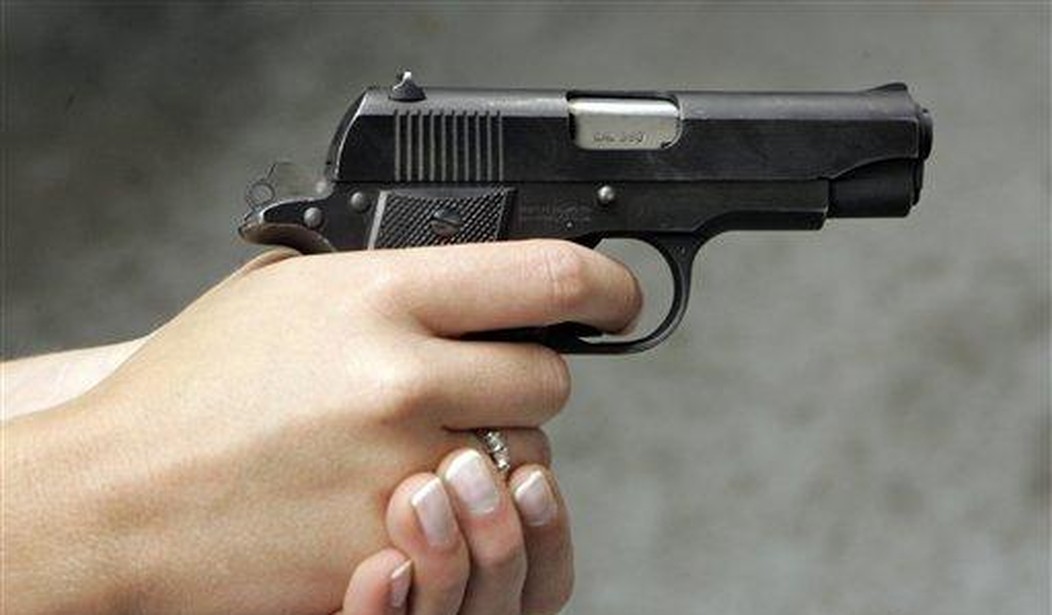It’s an extraordinarily rare event when I have issues with an ostensibly pro-Second Amendment piece of legislation, but I’ll confess that is the case with HB 1213 in North Dakota. The legislation would change state law to allow a court to reimburse a defendant for the cost of their legal defense, loss of wages, and other expenses if they’re charged with a “crime of violence” but are found not guilty by reasons of self-defense.
Among those testifying in support of the legislation this week was Kyle Rittenhouse, who walked lawmakers through the incredible cost of his defense after he was charged with homicide, attempted homicide, and recklessly endangering public safety. As Rittenhouse put it, while the high-profile nature of his trial allowed him to get support from a number of individuals who thought he was wrongly accused, most individuals who act in self-defense but still face charges aren’t going to be able to rely on media attention or outside support.
“I want to acknowledge that my case was thrust into the public eye by the media,” Rittenhouse testified. “I was blessed to receive the support from thousands of people who saw the situation for what it actually was. People came to my aid in many ways including financially donating to my legal defense fund. Unfortunately not everyone has the opportunity to receive this kind of support. Most people who are forced to defend themselves or their loved ones’ lives often end up losing their jobs, homes and livelihoods just trying to further defend themselves through the court process. Personally for me, it was like being thrown into a nightmare I couldn’t wake up from. It literally changed and impacted every aspect of my life. The House Bill 1213 being presented to you was created to protect the innocent who are thrust into violent situations and forced to defend their life or loved ones.”
Rittenhouse contended the proposed legislation seeks to prevent “the acquitted from losing everything they have worked their entire life for.”
“My mission is to use my personal experience to speak for victims and help evoke change to a broken system that leaves our American citizens as collateral damage in the wake of a court process that has grown numb and desensitized to the humanity of its decision,” Rittenhouse said.
Rittenhouse, who has supported similar legislation billed as “Kyle’s Law” in other states, argued that HB 1213 would provide “checks and balances,” forcing prosecutors to pause and gather all the facts in a case before filing charges.
I appreciate and understand where Rittenhouse is coming from, but I still have a couple of issues with the legislation.
First, why limit this solely to cases where someone is acquitted for reasons of self-defense? Seems to me that anyone acquitted of a criminal charge is going to have those same financial concerns that the legislation hopes to stave off, but they wouldn’t be eligible to recover the cost of their defense. That doesn’t sit right with me. If the goal here is to stop prosecutorial overreach, then the bill’s language shouldn’t be limited only to cases where self-defense claims arise.
It’s also unclear to me how applicable the bill’s language would be in the real world. Technically, the jury that acquitted Rittenhouse didn’t find that he acted in self-defense, only that prosecutors had failed to prove beyond a reasonable doubt that Rittenhouse had committed murder and attempted murder. Rittenhouse’s defense was that he was acting to protect himself, of course, but there was no specific finding of self-defense on the part of the judge or jury.
I took a look at the jury instructions in North Dakota, and as it turns out self-defense is not an affirmative defense claim that can be cited by the jury as a reason for acquittal. Instead, it’s included with a number of other defenses that juries can consider when applicable. But jury instructions don’t allow for a finding of not guilty for reasons of self-defense.
If you find from all the evidence in this case, beyond a reasonable doubt, that all of the foregoing essential elements of the crime of _______________ charged in the Information, viewed in the light of the law, have been proven, then it is your duty to find the Defendant guilty [, unless the Defendant has established the affirmative defense of _______________, by the greater weight of the evidence].
If the State has failed to establish any of those essential elements beyond a reasonable doubt, [or the Defendant has established the affirmative defense of _______________ by the greater weight of the evidence,] it is your duty to find the Defendant not guilty.
The form that juries fill out when acquitting a defendant also doesn’t allow for a finding of self-defense, simply stating that the undersigned “do find the defendant NOT GUILTY of the crime of _____.”
I’m not a fan of legislation that promises more than it delivers, and I’m concerned that’s the case with HB 1213 here. I’m all in favor of trying to crack down on prosecutorial overreach, but it shouldn’t be limited solely to cases involving self-defense and any legislation needs to be crystal clear not only in its intent, but in its application as well. Otherwise, this is just legislative puffery; something that’s supposed to make us feel better without providing any substantial benefit. We already get enough of that from anti-gun politicians. We don’t need it from our allies too. There’s a worthwhile premise at the heart of HB 1213, but I see some serious flaws in its current form.










